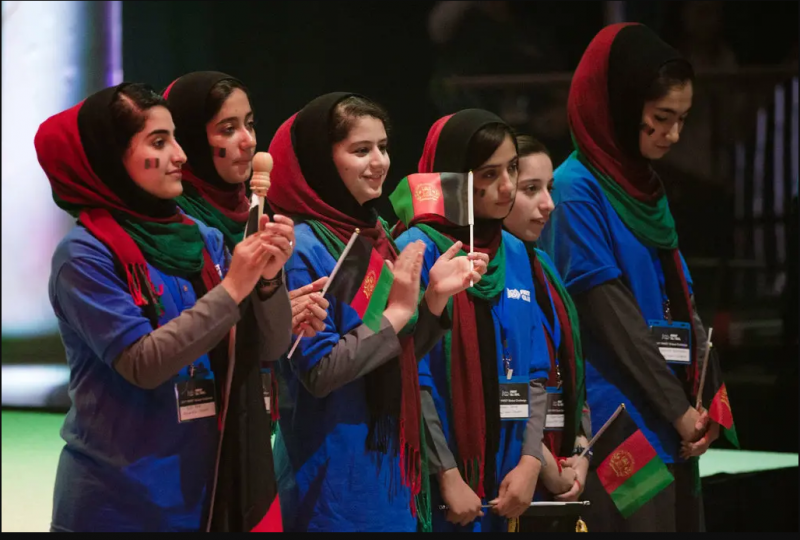
NY City: According to Pakistan's foreign minister, Bilawal Bhutto Zardari, "it should be an issue for the Muslim world" to address the plight of women in Afghanistan under the Taliban, not just for the benefit of the larger international community."
After Western troops left the country in August 2021, the Taliban took over Kabul, and since then, two decades of advancement in women's rights to education, employment, and empowerment have been sharply reverted. In order to change the trend, there have been calls for the international community to exert greater pressure on the regime.
While Pakistan and the rest of the world are waiting for "the interim Afghan regime" to fulfil its initial commitment to allow girls to attend school and receive a secondary education, Bhutto Zardari said that the issue should also be one "for the Muslim Ummah" in particular.
Because Islam was the first to grant women's rights, he explained. "Islam ensures that women have the freedom to participate in society and the right to an education.
Therefore, we anticipate that women will not only be guaranteed these rights but also be protected in Afghanistan and throughout the world.
Benazir Bhutto, the mother of Bhutto Zardari, was the first woman to head a democratic government in a country with a majority of Muslims.
Women's rights advocate Naheed Farid, who in 2010 was the youngest politician ever to be elected to Afghanistan's parliament, urged world leaders this month to call the Taliban a "gender apartheid" regime.
"Afghan women are experiencing one of the biggest human rights crises in the world and in the history of human rights," she told reporters in New York.
"In Afghanistan, there is gender discrimination. Not for the first time, I say that. But it is crucial for all of us to reiterate this whenever we can given the inaction of the global community and decision-makers in general.
Farid urged the Organization of Islamic Cooperation and other multilateral organisations to set up a special forum where Afghan women could speak with the Taliban directly about matters of women's and human rights.
The OIC's Council of Foreign Ministers is currently chaired by Bhutto Zardari, who told Arab News that he intends to organise a conference under the umbrella of the group to discuss women's rights in Islam "before our chairmanship expires."
The minister also discussed the Pakistani-American delegation's visit to Israel this week, which is their second such trip to the country since May. The visits have raised the possibility that Pakistan and Israel are turning a new page in their relationship, possibly paving the way for normalisation.
Prominent Muslim Americans, South Asian Americans, and members of the American Muslim and Multifaith Women's Empowerment Council are among the group that is currently in Israel. The delegation's stated purpose is "to continue the peacemaking efforts that started with the visit of the first delegation of interfaith leaders (and) help promote Pakistan-Israel relations and Pakistan's connection to the Abraham Accords," according to the statement made by the delegation.
Bhutto Zardari, on the other hand, asserted that the delegations have "nothing to do with the government" of Pakistan and that no formal talks about Pakistan joining the Abraham Accords, a recent set of normalisation pacts between Israel and several Arab nations, including the UAE and Bahrain, are currently taking place.
Let me say it again: Definitely not," Bhutto said. "Pakistan has always held a definite position on the Palestinian question.
"According to what I know about these delegations, I think that there are some international nongovernmental organisations that are sending people between nations or civilizations.
There is no connection to the government. However, every time one of these NGOs organises one of these interfaith or connected events, it just so happens that social media hypes it up as a part of our foreign policy, which it most definitely isn't because some of the attendees are either dual citizens of Pakistan or have some sort of connection there.
US may exchange military aircraft for assistance in Afghanistan with Uzbekistan and Tajikistan
How Afghanistan's problems slowed global progress toward the UN's goal of gender equality